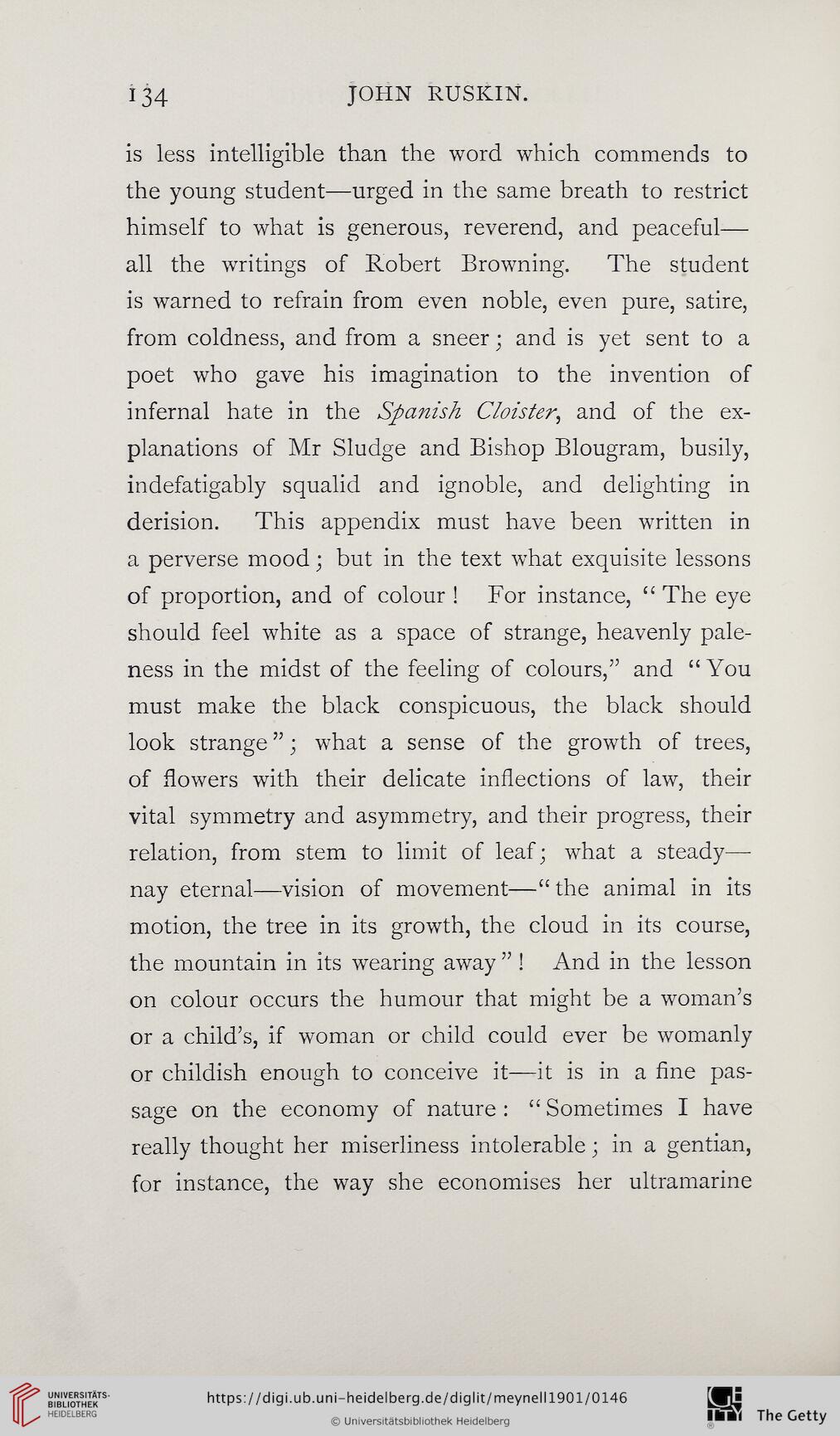134 JOHN RUSKIN.
is less intelligible than the word which commends to
the young student—urged in the same breath to restrict
himself to what is generous, reverend, and peaceful-
all the writings of Robert Browning. The student
is warned to refrain from even noble, even pure, satire,
from coldness, and from a sneer; and is yet sent to a
poet who gave his imagination to the invention of
infernal hate in the Spanish Cloister, and of the ex-
planations of Mr Sludge and Bishop Blougram, busily,
indefatigably squalid and ignoble, and delighting in
derision. This appendix must have been written in
a perverse mood; but in the text what exquisite lessons
of proportion, and of colour ! For instance, “ The eye
should feel white as a space of strange, heavenly pale-
ness in the midst of the feeling of colours,” and “ You
must make the black conspicuous, the black should
look strange ”; what a sense of the growth of trees,
of flowers with their delicate inflections of law, their
vital symmetry and asymmetry, and their progress, their
relation, from stem to limit of leaf; what a steady-
nay eternal—vision of movement—“the animal in its
motion, the tree in its growth, the cloud in its course,
the mountain in its wearing away ” ! And in the lesson
on colour occurs the humour that might be a woman’s
or a child’s, if woman or child could ever be womanly
or childish enough to conceive it—it is in a fine pas-
sage on the economy of nature : “ Sometimes I have
really thought her miserliness intolerable; in a gentian,
for instance, the way she economises her ultramarine
is less intelligible than the word which commends to
the young student—urged in the same breath to restrict
himself to what is generous, reverend, and peaceful-
all the writings of Robert Browning. The student
is warned to refrain from even noble, even pure, satire,
from coldness, and from a sneer; and is yet sent to a
poet who gave his imagination to the invention of
infernal hate in the Spanish Cloister, and of the ex-
planations of Mr Sludge and Bishop Blougram, busily,
indefatigably squalid and ignoble, and delighting in
derision. This appendix must have been written in
a perverse mood; but in the text what exquisite lessons
of proportion, and of colour ! For instance, “ The eye
should feel white as a space of strange, heavenly pale-
ness in the midst of the feeling of colours,” and “ You
must make the black conspicuous, the black should
look strange ”; what a sense of the growth of trees,
of flowers with their delicate inflections of law, their
vital symmetry and asymmetry, and their progress, their
relation, from stem to limit of leaf; what a steady-
nay eternal—vision of movement—“the animal in its
motion, the tree in its growth, the cloud in its course,
the mountain in its wearing away ” ! And in the lesson
on colour occurs the humour that might be a woman’s
or a child’s, if woman or child could ever be womanly
or childish enough to conceive it—it is in a fine pas-
sage on the economy of nature : “ Sometimes I have
really thought her miserliness intolerable; in a gentian,
for instance, the way she economises her ultramarine





